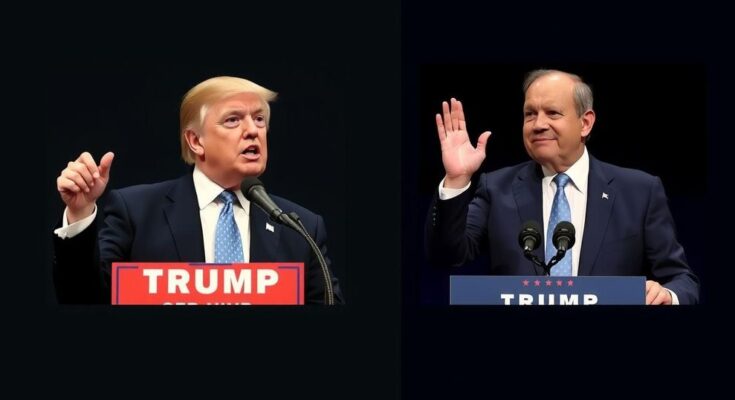The economic landscape dominates the 2024 presidential campaign, showcasing deep contrasts between Trump and Harris’s proposals. Trump promotes aggressive tax cuts and tariffs, while Harris focuses on creating an equitable economic environment. Polls reflect voter confidence leaning towards Trump, yet economic experts express caution regarding the implications of both candidates’ policies.
As the 2024 presidential campaign heats up, economic issues are at the forefront, a sentiment echoed by voters who consider it a top priority. A Pew Research Center survey indicates that nearly 80% of voters view the economy as crucial in their choice for the next president. Former President Donald Trump and Vice President Kamala Harris showcase starkly contrasting economic policies. Trump’s rally in Asheville highlighted his economic agenda, promising, “The day I take the oath of office, we will rapidly drive prices down and make America affordable again.” His strategy includes combating inflation, ensuring the permanence of tax cuts, boosting American energy production, reducing government spending, imposing tariffs on imports, and addressing illegal immigration. In contrast, Harris aims to create what she calls “an opportunity economy,” offering chances for success no matter where one lives. Her proposals focus on reducing taxes for working individuals, lowering essential living costs, regulating against price gouging, and enhancing support for small businesses through innovation and entrepreneurship. “I believe we have an extraordinary opportunity to make our middle class the engine of America’s prosperity,” she stated in Pittsburgh. The Pew survey reveals that 55% of voters trust Trump more with economic policies, compared to 45% who favor Harris. Yet, concerns surface among economists regarding Trump’s proposals, particularly his tariff plans and the desire to limit Federal Reserve independence. Steven Durlauf from the University of Chicago warns, “If you were to ask for economists who is proposing more dangerous things for the United States, I’ll be blunt, I think Trump would be the person.” Durlauf argues that while both candidates face scrutiny, Harris’s proposals, especially around price gouging regulations, also receive criticism from experts. Economists may find both plans lacking in certain areas, leading to a complex debate about the future of America’s economic landscape as election day approaches.
The ongoing 2024 presidential campaign emphasizes economic issues, a crucial concern for American voters. High inflation rates and rising living costs have prompted candidates to articulate robust economic strategies to connect with the electorate. With varied backgrounds and experiences, both Trump and Harris bring conflicting views on how to effectively manage economic challenges facing the nation, impacting voters’ choices as they approach election day.
In summary, Trump’s and Harris’s divergent economic policies reflect contrasting visions for America’s future. While Trump advocates for aggressive fiscal measures and tariffs, Harris emphasizes accessibility and innovation in building an equitable economy. Voter confidence skews in favor of Trump, yet economic experts echo concerns over the implications of both candidates’ proposals. As the campaign unfolds, the debate around these economic approaches promises to shape the national discourse as voters make their decisions.
Original Source: www.wbay.com



